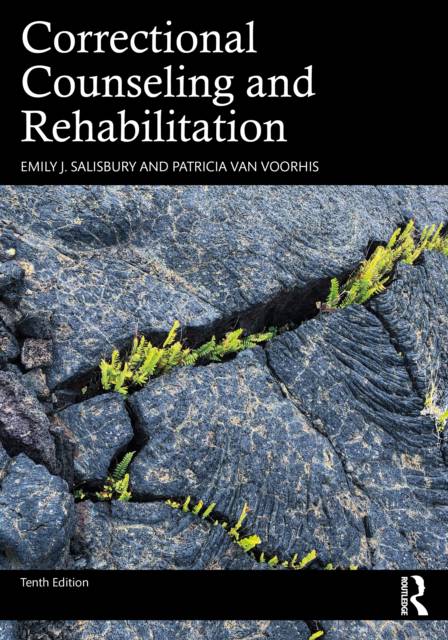
- Afhalen na 1 uur in een winkel met voorraad
- Gratis thuislevering in België
- Ruim aanbod met 7 miljoen producten
- Afhalen na 1 uur in een winkel met voorraad
- Gratis thuislevering in België
- Ruim aanbod met 7 miljoen producten
Correctional Counseling and Rehabilitation
Emily J Salisbury, Patricia Van VoorhisOmschrijving
This text presents the foundations of correctional treatment and intervention, including overviews of the major therapeutic modalities that are effective when intervening with justice-involved individuals to reduce ongoing system involvement and improve well-being. The text also focuses on diagnosis of mental illness, correctional assessment and classification, case planning strategies, and the necessary counseling and human service skills for working alongside system-involved people.
Specific chapters focus on working with women, individuals struggling with substance abuse, and clients with severely antisocial behavior such as psychopathy. Written to help students prepare for a career in correctional counseling or forensic social work, the book also assists working professionals (e.g., institutional and community corrections staff) to determine which strategies might be most effective with their clients. Revised using person-centered language, the tenth edition includes a new chapter focused on the necessary relational skills that probation and parole officers must have to be agents of behavior change. The content is divided into four parts: (1) A Professional Framework for Correctional Counseling; (2) Client Assessment, Diagnosis, Classification, and Case Planning; (3) Contemporary Approaches for Correctional Counseling and Treatment, and (4) Effective Correctional Interventions for Special Populations.
This book is appropriate for upper-level undergraduates and graduate students in Criminal Justice and Criminology, Psychology, and Social Work programs, as well as correctional practitioners looking for professional development to enhance behavior change among clients.
Specificaties
Betrokkenen
- Auteur(s):
- Uitgeverij:
Inhoud
- Aantal bladzijden:
- 396
- Taal:
- Engels
Eigenschappen
- Productcode (EAN):
- 9780367406455
- Verschijningsdatum:
- 18/05/2022
- Uitvoering:
- Paperback
- Formaat:
- Trade paperback (VS)
- Afmetingen:
- 178 mm x 254 mm
- Gewicht:
- 712 g

Alleen bij Standaard Boekhandel
Beoordelingen
We publiceren alleen reviews die voldoen aan de voorwaarden voor reviews. Bekijk onze voorwaarden voor reviews.












